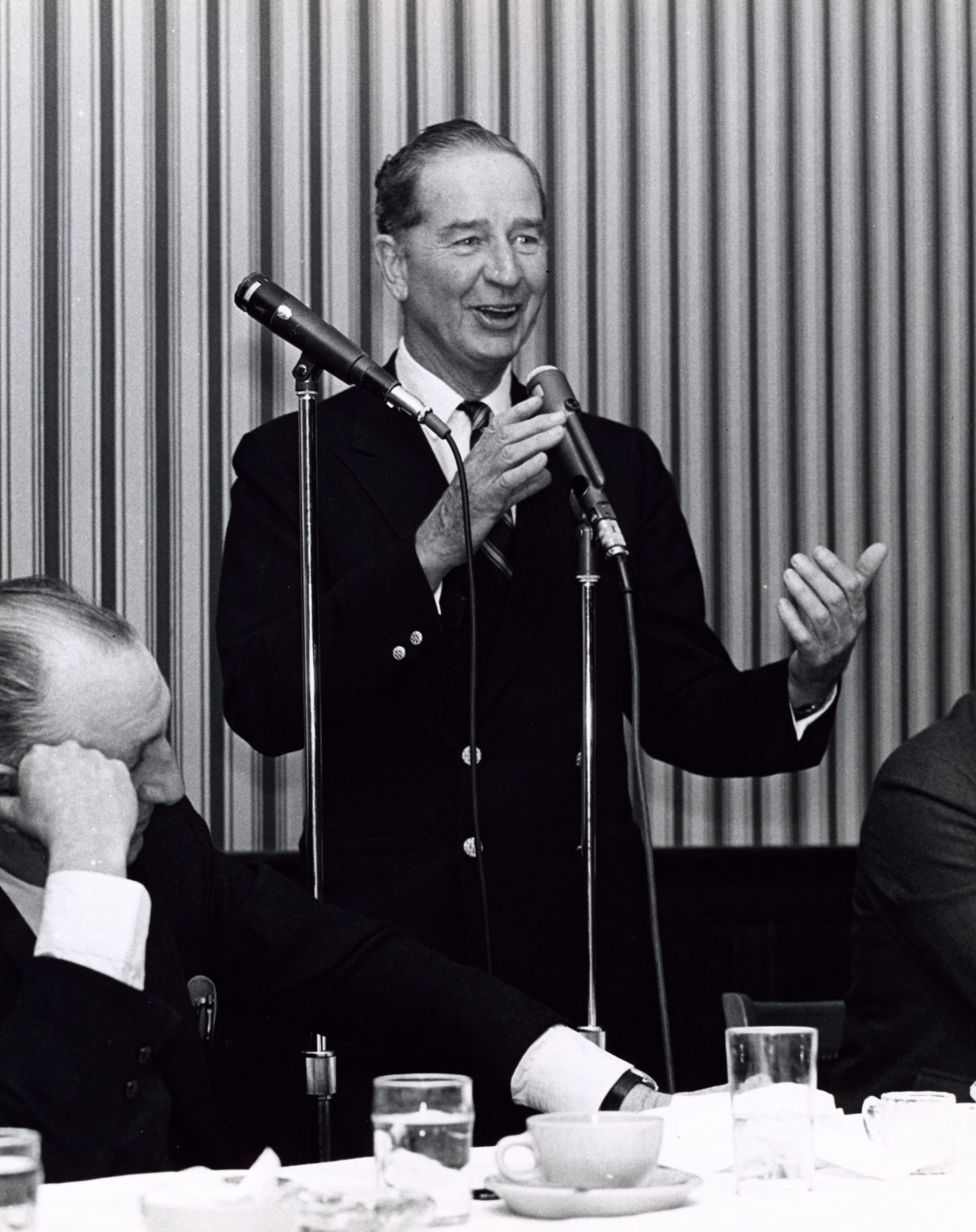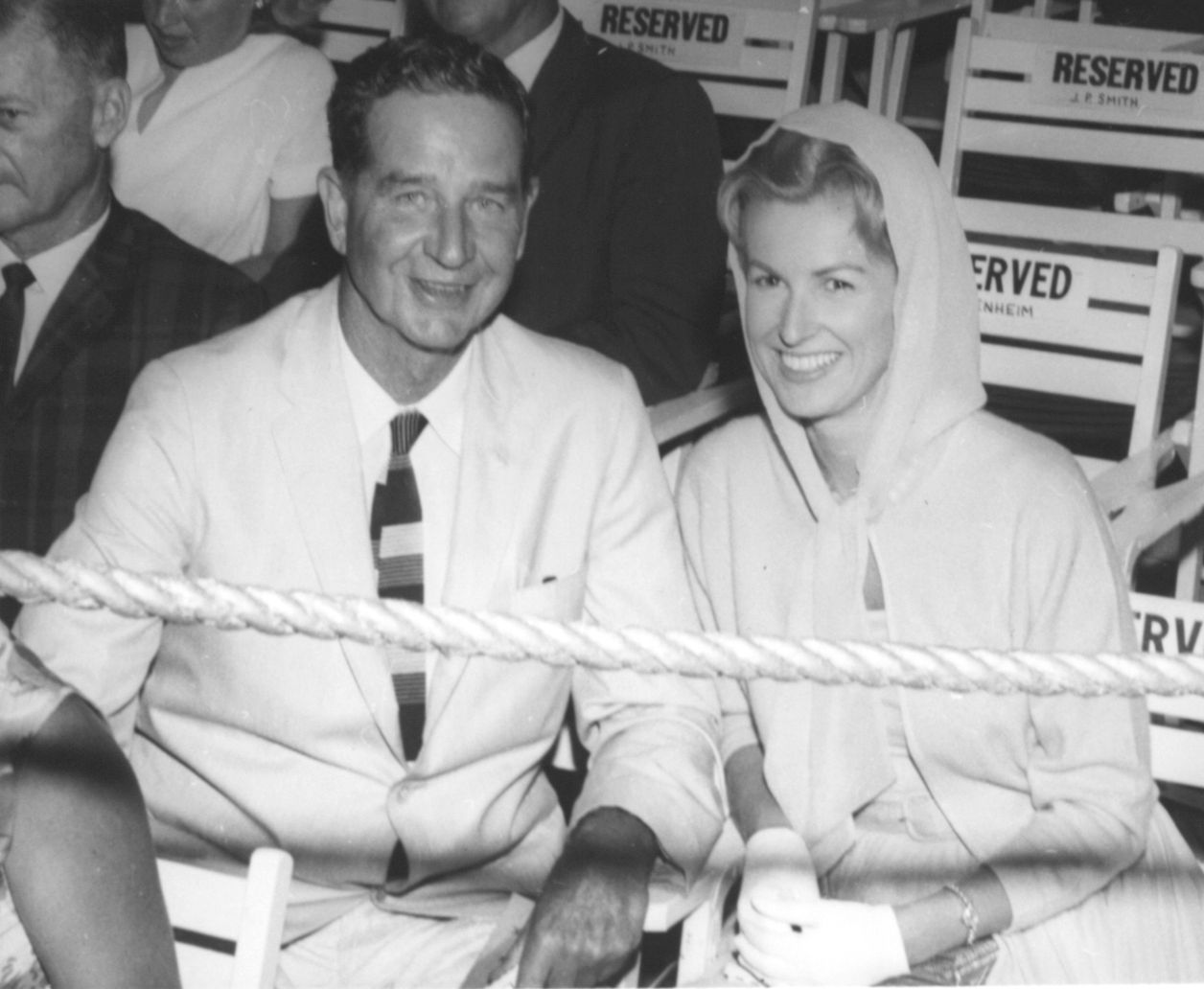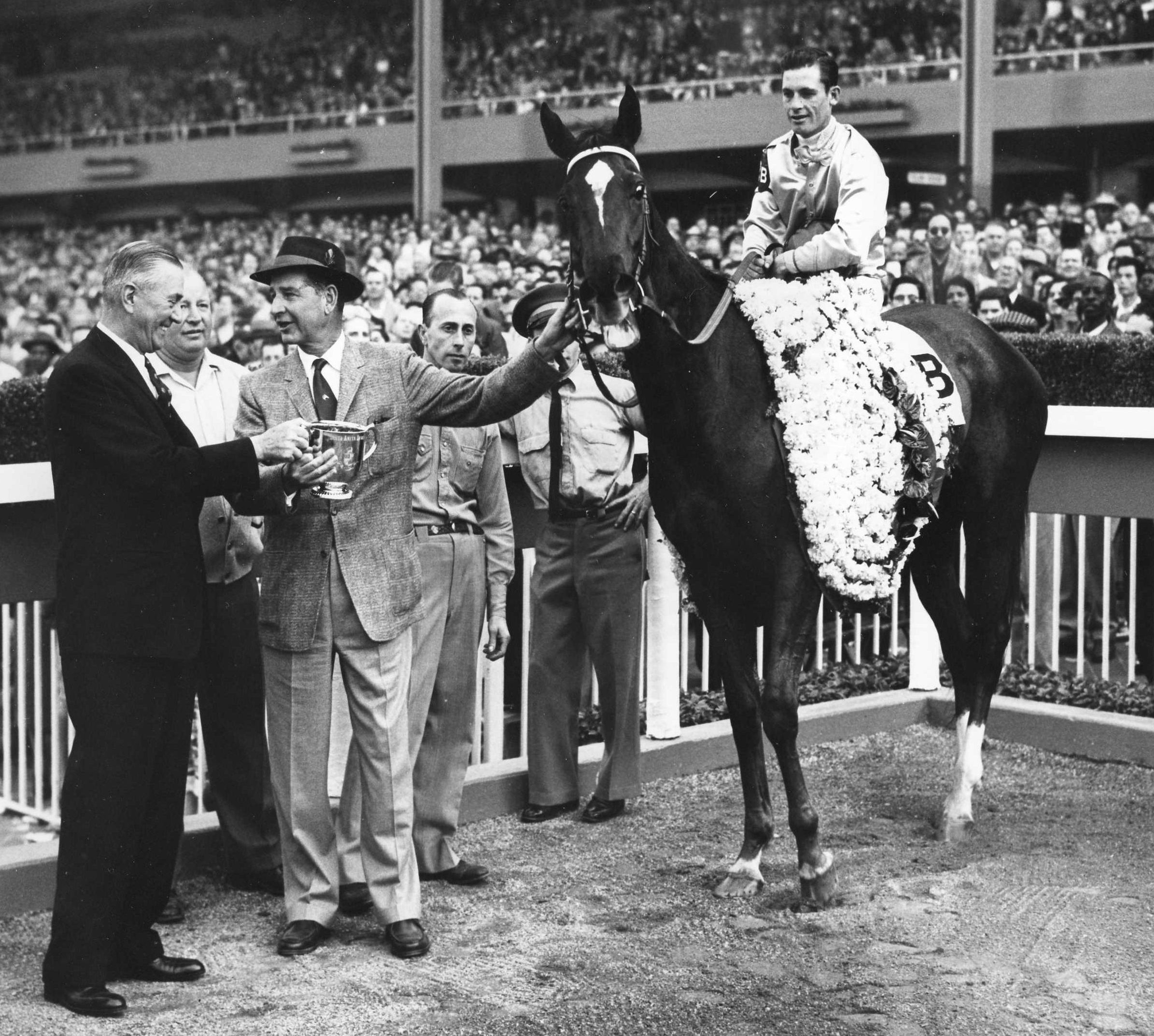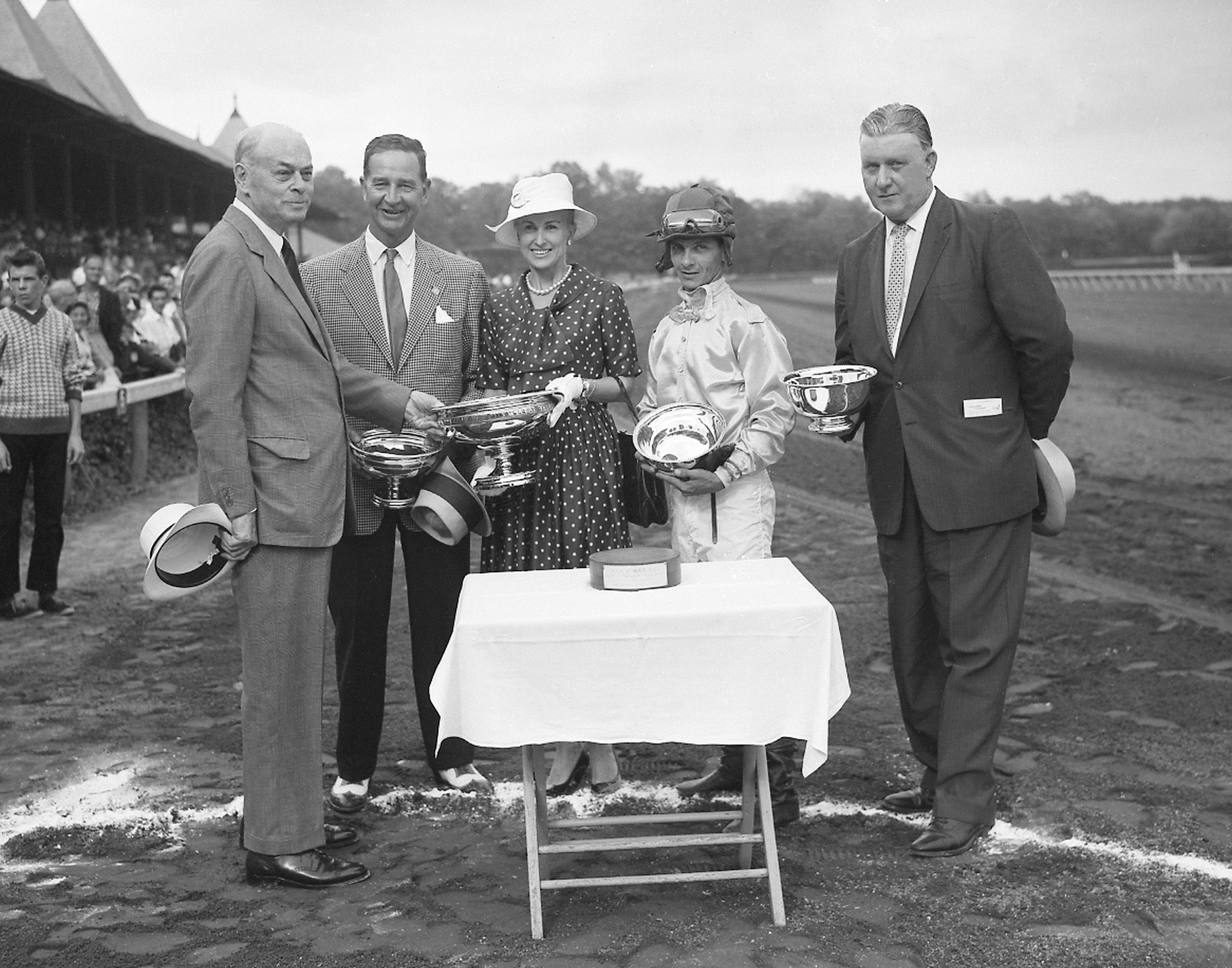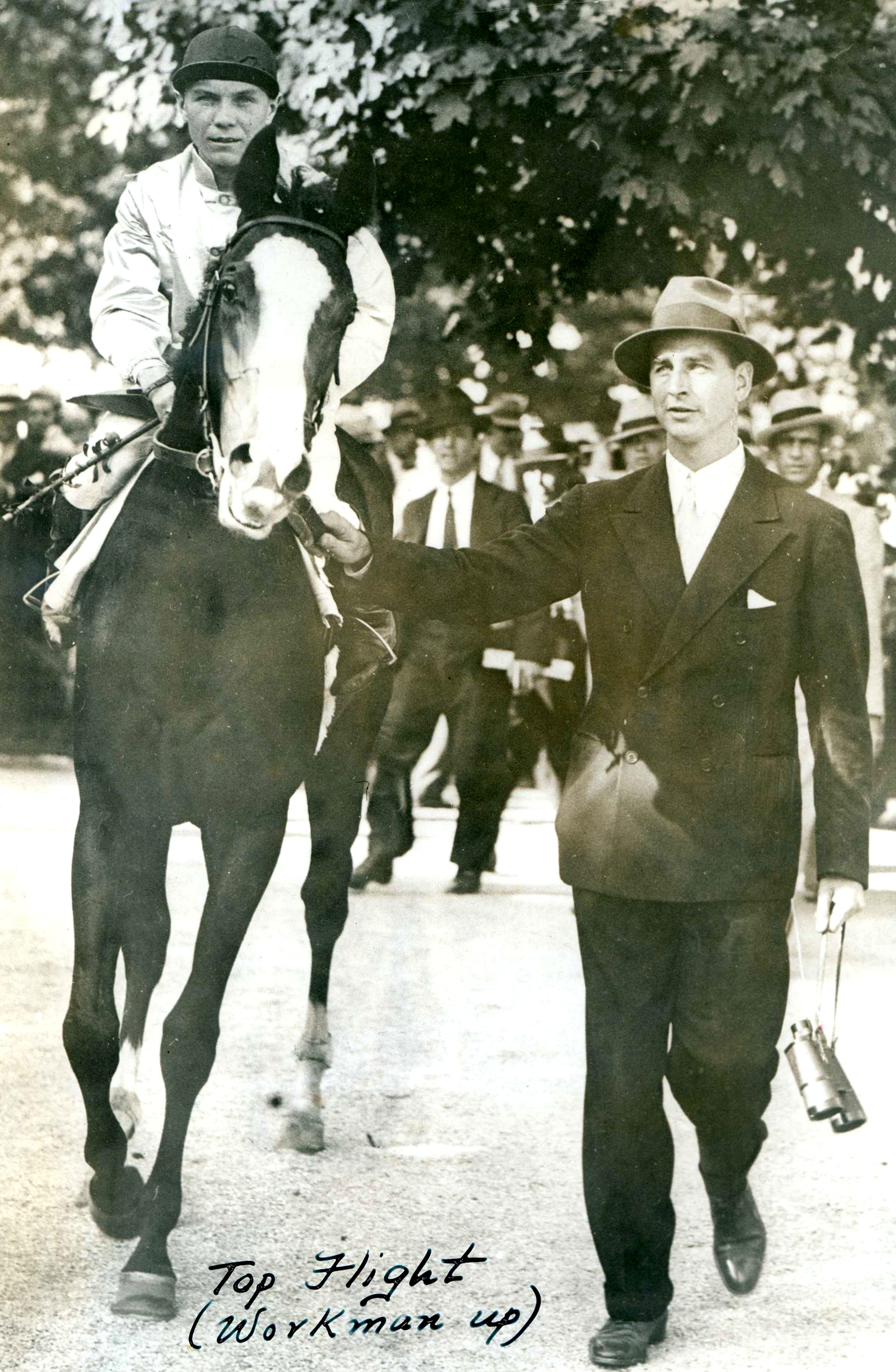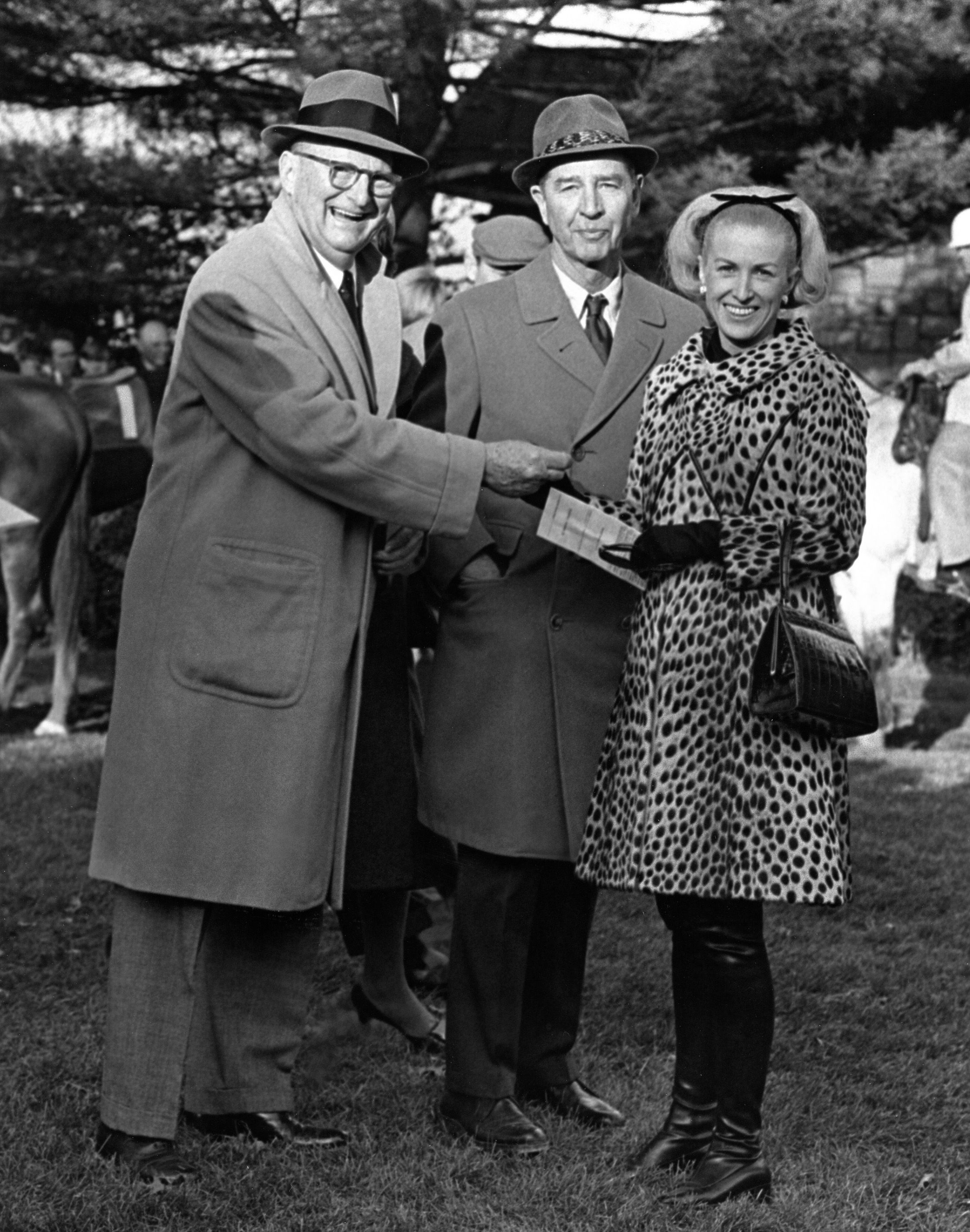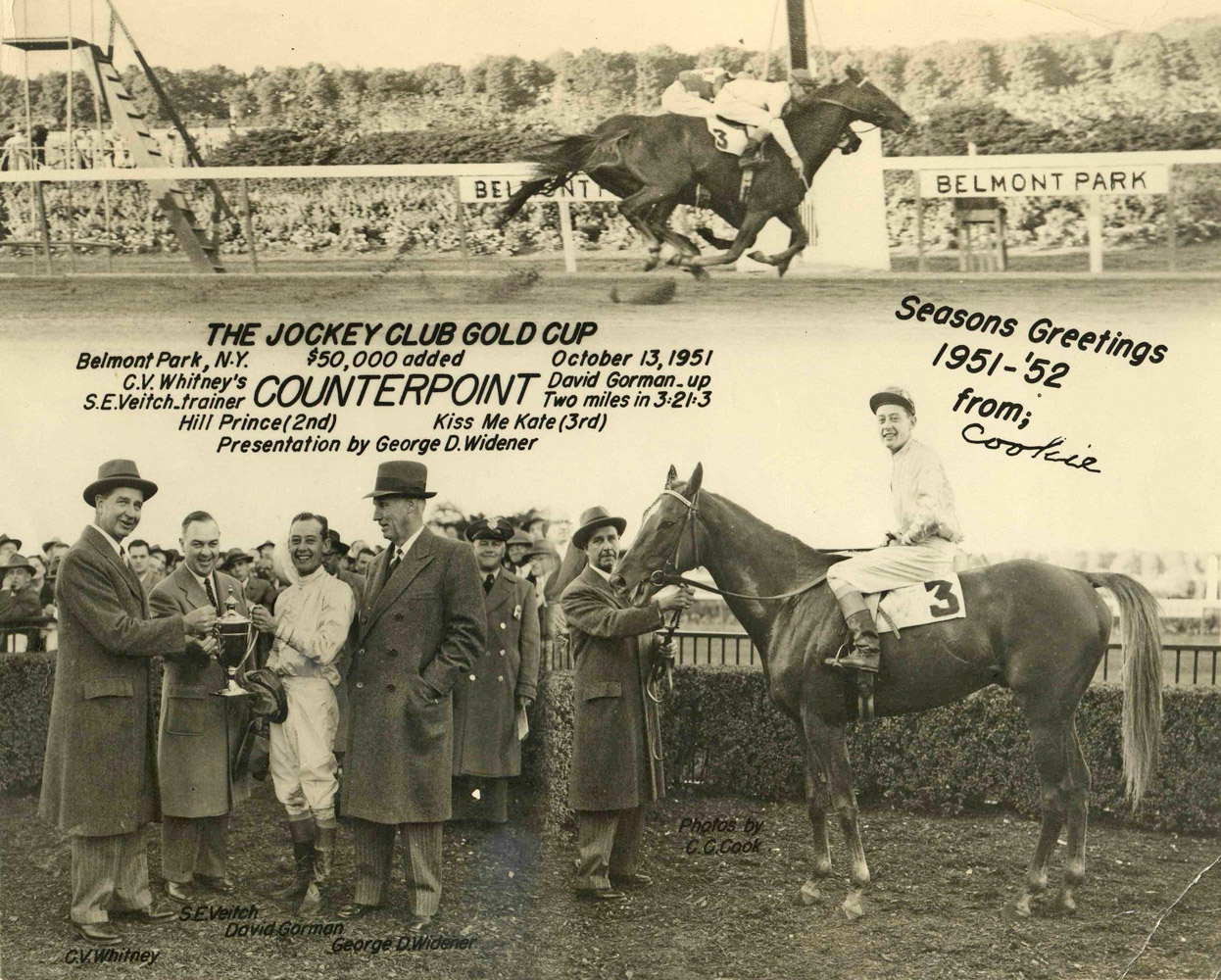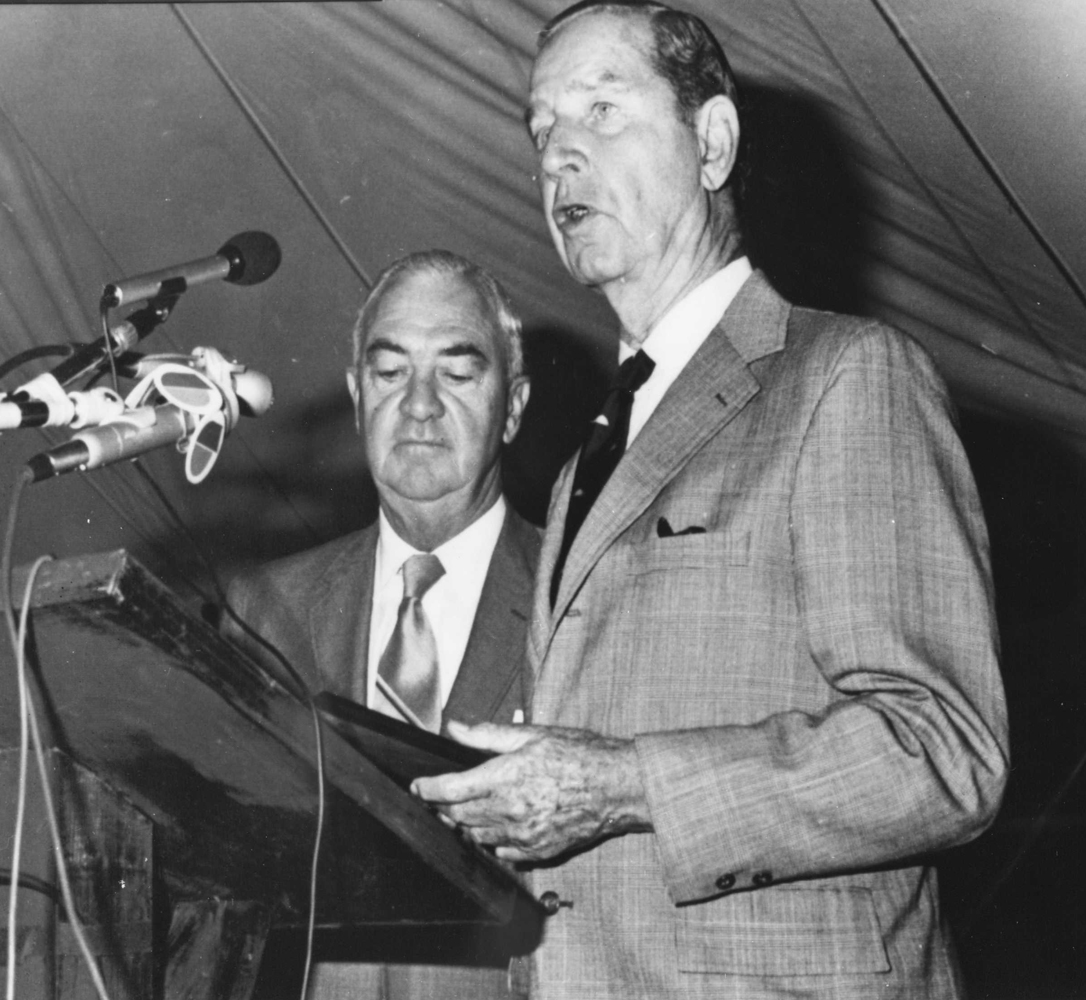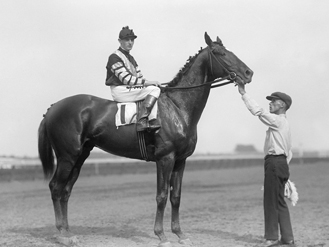Cornelius Vanderbilt Whitney
Cornelius Vanderbilt “Sonny” Whitney was a man of diverse interests. His numerous passions included the arts, daring entrepreneurial endeavors, motion pictures, philanthropy, politics, polo, service to his country, and a love for thoroughbred racing. His was a life well led.
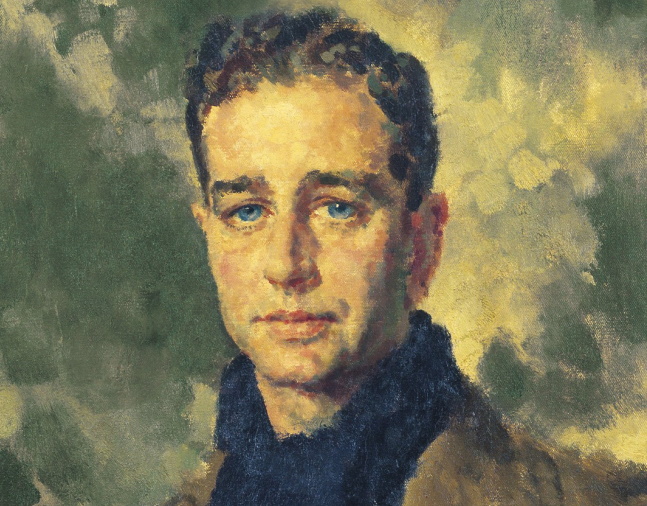
2018
Feb. 20, 1899, Roslyn, New York
Dec. 13, 1992, Saratoga Springs, New York
Biography
Cornelius Vanderbilt “Sonny” Whitney was a man of diverse interests. His numerous passions included the arts, daring entrepreneurial endeavors, motion pictures, philanthropy, politics, polo, service to his country, and a love for thoroughbred racing. His was a life well led.
Born in Roslyn, New York in 1899, Whitney was the son of Harry Payne Whitney and the grandson of William Collins Whitney, both of whom were towering figures in American racing and society. Like his father and grandfather, Whitney graduated from Yale University. He served in the Army as a Second Lieutenant and flight instructor during World War I and volunteered for service in the Army Air Forces in World War II. Whitney was awarded the Distinguished Service Medal and Legion of Merit and later served under President Harry S. Truman as Assistant Secretary of the Air Force and Undersecretary of Commerce.
In the late 1920s, Whitney backed the establishment of the Aviation Corporation of America, which later became Pan American World Airways. In the 1930s, he became a major player in the motion picture industry along with his cousin, John Hay Whitney, as a prominent shareholder in the Technicolor Corporation. The two were also financiers of the 1939 classic film “Gone With the Wind.” Whitney later started his own C. V. Whitney Pictures, which produced the films “The Searchers,” “The Missouri Traveler,” and “The Young Land.”
Embracing one of his father’s pastimes, Whitney became a superb polo player. He won the U.S. Open polo title three times and did much to advance and promote the sport. When his father died in 1930, Whitney took up the family tradition in thoroughbred racing, inheriting his father’s Kentucky breeding farm and racing stable.
The success of the operation didn’t skip a beat. Two of the last great horses bred by H. P. Whitney prior to his death were the legends Equipoise and Top Flight. The two eventual Hall of Famers signaled the beginning of C. V. Whitney’s foray into racing as an owner. A two-time Horse of the Year, Equipoise won 29 of his 51 races. Known as “The Chocolate Soldier,” Equipoise’s victories included the Whitney Handicap, Saratoga Cup, Suburban Handicap and two editions of the Metropolitan Handicap, among others. While on his deathbed, H. P. Whitney stipulated that Equipoise be raced in the Pimlico Futurity whether he was alive to see it or not.
So began C. V. Whitney’s long association with American racing. Through the encouragement of William Woodward, Sr. and Joseph Widener, Whitney became a member of The Jockey Club in 1930. He attended the Pimlico races on Nov. 5, 1930, a little more than a week after his father’s death, to see Equipoise defeat Twenty Grand in the Pimlico Special. The Baltimore Sun headline declared it the “Most Spectacular Race in a Decade.”
In the same era, Top Flight was the best filly in America as a juvenile and 3-year-old. Her impressive list of victories included the Saratoga Special, Spinaway Stakes, Matron Stakes, Belmont Futurity, Pimlico Futurity, Acorn Stakes, Coaching Club American Oaks and Alabama Stakes.
Following his time under President Truman as Assistant Secretary of the Air Force (1947 to 1949) and Undersecretary of Commerce (1949 to 1950), Whitney took on a role in diplomatic service as envoy to the United Kingdom, Luxembourg, Spain and Italy.
Along with all his various business and government commitments, Whitney continued to thrive in racing both as an owner and breeder. In 1940, he imported the stallion Mahmoud, who went on to sire 70 stakes winners, including First Flight, Oil Capitol, The Axe II, Cohoes, and Vulcan’s Forge. Mahmoud was the leading sire in North America in 1946. His impact on thoroughbred breeding was also significant as the damsire of Career Boy, Gallant Man, Determine, Grey Dawn, Silver Spoon, and Avatar. Mahmoud also sired Almahmoud, the mother of Natalma, who in turn produced Northern Dancer, one of the most prolific sires of all time. The 176 stakes winners Whitney bred included five champions: Handcuff, First Flight, Counterpoint, Career Boy, and Silver Spoon.
Whitney enjoyed success in many of America’s most prestigious races. He won the Belmont Stakes in 1947 with Phalanx and in 1951 with Horse of the Year Counterpoint, as well as the Travers with Fisherman (1954), Tompion (1960), and Chompion (1968).
In 1950, Whitney was one of the founders of the National Museum of Racing in Saratoga Springs, New York, and served as served as its first president. He also spent time as a director at Churchill Downs. Whitney was presented the Eclipse Special Award for lifetime service to the sport in 1984. He retired from racing that year, passing the proverbial torch — and the iconic Eton blue and brown silks of three generations of his family — to his nephew, Leverett Miller. In 1991, Whitney was honored by the National Museum of Racing and Hall of Fame as an Exemplar of Racing. He died a year later at the age of 93 at his Cady Hill home in Saratoga Springs. Whitney’s widow, Marylou Whitney, later emerged as an impactful owner and breeder in her own right and continues to champion the legacy of her late husband.
Following C. V. Whitney’s death, Ed Bowen of The Blood-Horse wrote: “Whitney’s books bespoke a tranquility in later life, an appreciation of family life with his last marriage, as well as his lifelong devotion to America. He remained comfortable with royalty and presidents, farm hands and country fishermen. … Old Mahmoud is in pastures we cannot see, Equipoise and Counterpoint long ago put down the baton, and Phalanx, Tompion and Silver Spoon turn for home only in sunlit memory. The Turf was but a part of Whitney’s life, but through decades of change he was a graceful reminder of what racing was, and still is, at its best.”
Achievements
Eclipse Special Award — 1984
Triple Crown Highlights
Won the 1947 Belmont Stakes — Phalanx
Won the 1951 Belmont Stakes — Counterpoint
Other Highlights
Won the Travers Stakes — 1954, 1960, 1968
Bred 176 stakes winners, including five champions
Media
